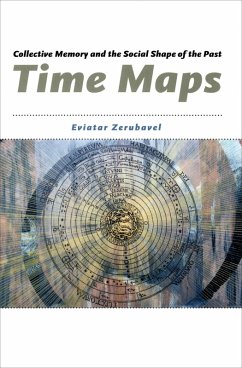The pioneering sociologist and author of The Seven Day Circle continues his analysis of time with this fascinating look at history as social construct. Who were the first people to inhabit North America? Does the West Bank belong to the Arabs or the Jews? Why are racists so obsessed with origins? Is a seventh cousin still a cousin? Why do some societies name their children after dead ancestors? As Eviatar Zerubavel demonstrates in Time Maps, we cannot answer burning questions such as these without a deeper understanding of how we envision the past. In a pioneering attempt to map the structure of collective memory, Zerubavel considers the cognitive patterns we use to organize the past and the social grammar of conflicting interpretations of history. Drawing on fascinating examples that range from Hiroshima to the Holocaust, and from ancient Egypt to the former Yugoslavia, Zerubavel shows how we construct historical origins; how we tie discontinuous events together into stories; how we link families and entire nations through genealogies; and how we separate distinct historical periods from one another through watersheds, such as the invention of fire or the fall of the Berlin Wall. " Time Mapsextends beyond all of the old clichés about linear, circular, and spiral patterns of historical process and provides us with models of the actual legends used to map history...brilliant and elegant."-Hayden White, University of California, Santa Cruz
Bitte wählen Sie Ihr Anliegen aus.
Rechnungen
Retourenschein anfordern
Bestellstatus
Storno









